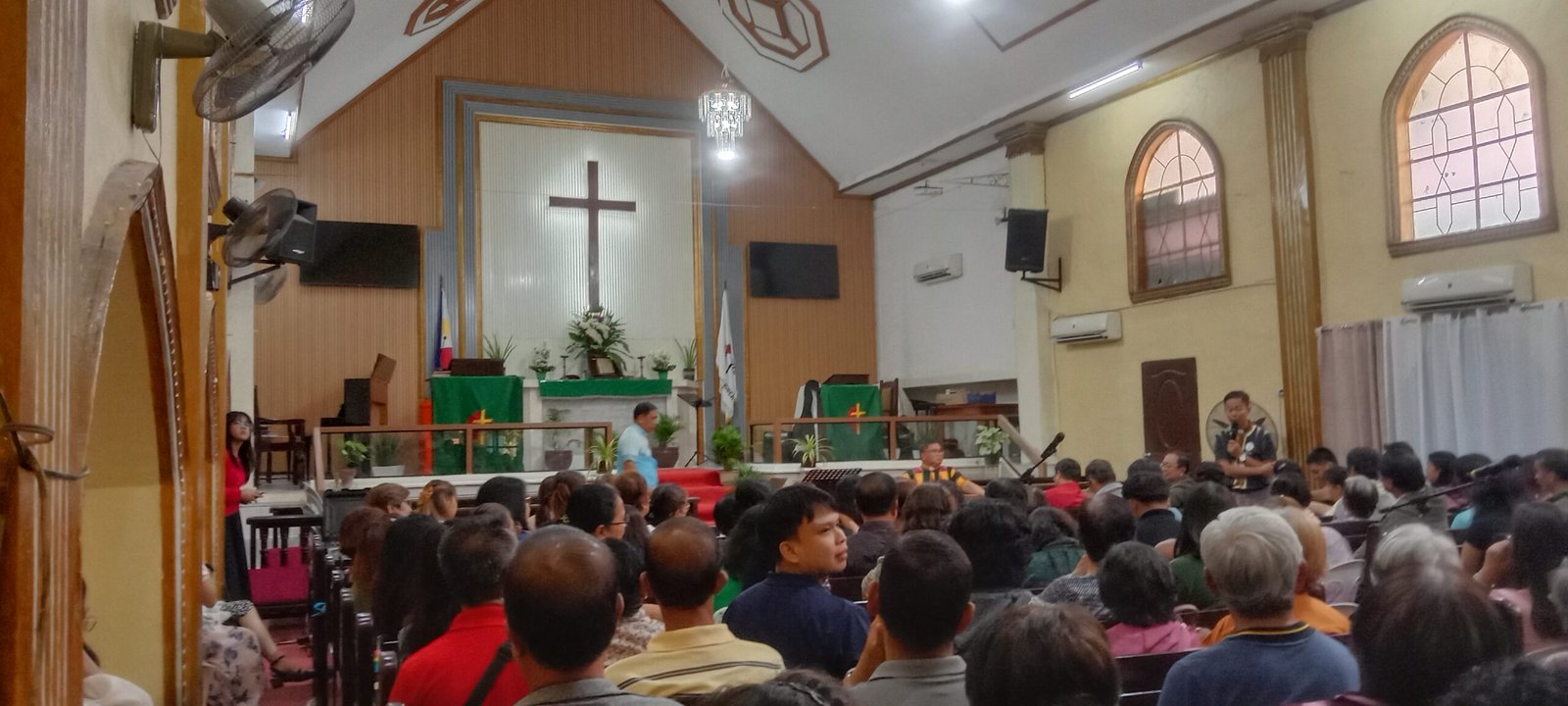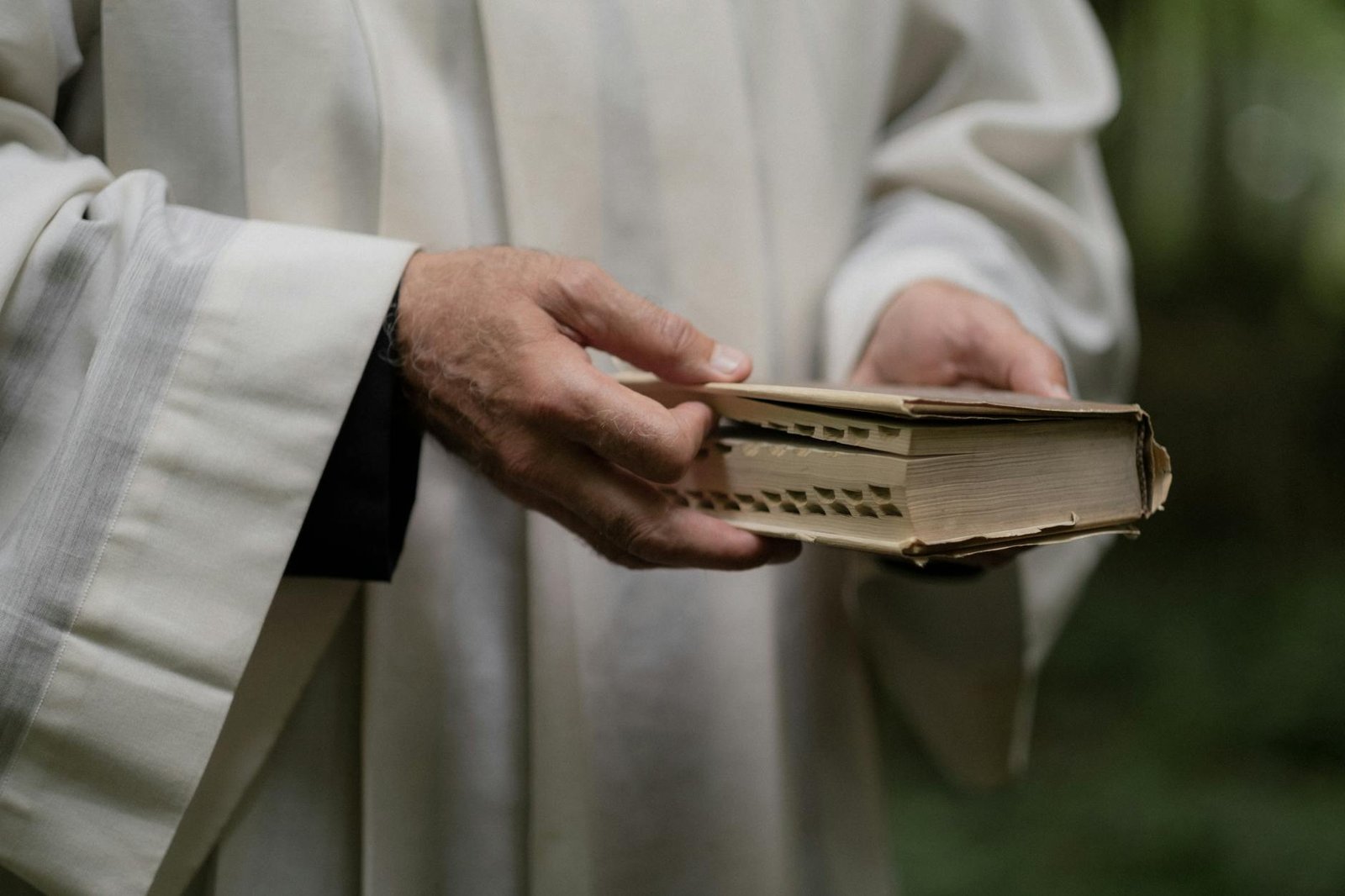
Introduction to Articles 15-25
The Articles of Religion of the United Methodist Church serve as a foundational doctrinal statement that defines the theological and ecclesiastical positions of the denomination. Originating from the Anglican tradition and influenced by the early Methodist movement, these articles were adopted in their current form in 1784, during the founding of the Methodist Episcopal Church in America. Articles 15 through 25, in particular, play a crucial role in shaping the church’s governance, sacramental theology, and social principles.
Historically, these articles emerged during a time when the Methodist movement sought to establish its distinct identity while remaining rooted in the broader Christian tradition. The Articles of Religion were designed to provide a clear and concise summary of essential beliefs, fostering unity and guiding the church’s mission. By examining Articles 15 through 25, one gains insight into the United Methodist Church’s approach to vital issues such as the nature and administration of sacraments, the role of the church in society, and the principles of church governance.
Articles 15 through 25 cover a range of themes that are central to the life and mission of the church. These include the sacraments of Baptism and the Lord’s Supper, which are seen as means of grace and crucial components of the church’s liturgical practice. Additionally, these articles address the governance structure of the church, emphasizing the importance of orderly and accountable leadership. The social principles articulated in these articles reflect the church’s commitment to justice, compassion, and advocacy for the marginalized, underscoring the practical implications of faith in the public sphere.
Overall, Articles 15 through 25 provide a comprehensive framework that guides the United Methodist Church in its theological reflections and practical engagements. By grounding their beliefs and practices in these articles, the church continues to navigate the complexities of contemporary society while remaining faithful to its historical roots and doctrinal commitments.
Article 15 of the Articles of Religion of the United Methodist Church emphasizes the importance of conducting worship services in a language that the congregation understands. This principle underlines the necessity for inclusivity and comprehension in religious practices, ensuring that all members of the congregation can fully participate in and benefit from the worship experience.
Historically, the issue of language in worship has been significant. During the Reformation period, services were often conducted in Latin, a language not understood by the majority of the congregation. This created a barrier between the clergy and the laity, limiting the latter’s ability to engage meaningfully in worship. The push for services in the vernacular was a crucial aspect of the Reformation, as it sought to make religious practices accessible to all believers, thereby fostering a more inclusive faith community.
In modern practices of the United Methodist Church, Article 15 continues to play a vital role. Church services are conducted in the local language of the congregation, whether it be English, Spanish, Korean, or any other language spoken by the community. This approach ensures that scripture readings, sermons, hymns, and prayers are comprehensible, allowing congregants to engage deeply with the message and participate actively in the worship experience.
For instance, in multicultural congregations, it is common to see services that incorporate multiple languages, or separate services conducted in different languages to cater to the linguistic diversity of the congregation. Additionally, the use of translated materials, bilingual bulletins, and multilingual digital resources further supports the inclusivity mandated by Article 15.
By prioritizing the use of a language that the congregation understands, the United Methodist Church upholds the values of accessibility and inclusivity, ensuring that worship remains a communal and participatory experience for all members. This practice not only preserves the historical significance of the Reformation’s emphasis on vernacular language but also adapts to the contemporary needs of a diverse and global faith community.
Article 16: Of the Sacraments
Article 16 of the Articles of Religion of the United Methodist Church addresses the sacraments, emphasizing their profound significance within the faith community. The United Methodist Church recognizes two sacraments: Baptism and the Lord’s Supper, also known as the Eucharist. These sacraments are not merely ritualistic actions but are seen as essential means of grace, instituted by Christ himself, and serve as vital expressions of the church’s faith and practice.
Baptism is the sacrament of initiation into the Christian faith. It symbolizes the cleansing of sin, the new birth in Christ, and the individual’s entry into the community of believers. The theological basis for Baptism in the United Methodist Church is grounded in Jesus’ command in Matthew 28:19-20, where he instructs his disciples to “go and make disciples of all nations, baptizing them in the name of the Father and of the Son and of the Holy Spirit.” Baptism is available to individuals of all ages, including infants, signifying the grace of God that precedes and enables human response.
The Lord’s Supper, or Eucharist, is the sacrament of sustenance and remembrance. It commemorates the Last Supper Jesus shared with his disciples and is a means by which believers experience the real presence of Christ. The theological foundation for the Eucharist is derived from the accounts of the Last Supper found in the Gospels and Paul’s writings in 1 Corinthians 11:23-26. During the Eucharist, participants partake in bread and wine (or grape juice), representing the body and blood of Christ, which were given for the forgiveness of sins and the establishment of a new covenant.
In the life of the church and individual believers, these sacraments serve as outward and visible signs of inward and spiritual grace. They are vital practices that nurture faith, foster a sense of community, and reinforce the connection with the divine. The sacraments are celebrated regularly within the United Methodist Church, underscoring their indispensable role in the spiritual journey of its members.
Article 17: Of Baptism
Article 17 of the Articles of Religion of the United Methodist Church delineates the theological and doctrinal understanding of the sacrament of Baptism. Baptism is perceived as a significant act within the church, embodying both a means of grace and a rite of initiation into the Christian community. The United Methodist Church holds that Baptism is a divine ordinance instituted by Jesus Christ, symbolizing the washing away of sin and the rebirth of an individual into a new life in Christ.
According to the United Methodist Church, Baptism is not merely a ceremonial tradition but a profound spiritual experience that signifies God’s grace. This sacrament is open to all individuals, regardless of age. Therefore, both infants and adults may be baptized, reflecting the church’s inclusive theology that emphasizes the universality of God’s grace. The act of Baptism is believed to incorporate the baptized into the body of Christ, marking their official entry into the church and beginning their journey of faith.
The United Methodist Church recognizes and practices three modes of Baptism: immersion, pouring, and sprinkling. These varied methods underscore the church’s flexibility and acknowledgment of diverse traditions within the Christian faith. Regardless of the mode employed, the essence of Baptism remains unchanged; it is the outward and visible sign of an inward and spiritual grace. Through these practices, the church affirms that the sacrament’s validity is not dependent on the method but on the invocation of the Holy Spirit and the act of faith it represents.
Ultimately, Baptism within the United Methodist Church is a testament to God’s unmerited favor and love. It serves as a vital sacrament that unites believers, marking them as members of the global Christian community and initiating them into a lifelong journey of discipleship. Through Baptism, individuals are called to grow in faith, participate in the life of the church, and live out their commitment to Christ in their daily lives.
Article 18: Of the Lord’s Supper
Article 18 of the Articles of Religion of the United Methodist Church addresses the sacrament of the Lord’s Supper, a central component of Christian worship and life. The United Methodist Church views the Lord’s Supper, also known as Communion, as both a symbolic and spiritual act. It represents the body and blood of Jesus Christ, sacrificed for humanity’s sins, and serves as a profound reminder of His love and sacrifice.
Communion is not merely a ritual but is considered a means of grace. It is an opportunity for believers to experience God’s presence in a tangible way, renewing their faith and strengthening their relationship with Christ. The United Methodist Church teaches that the Lord’s Supper is open to all who seek to live in peace with one another, repent of their sins, and are willing to follow Christ’s teachings. This practice of open Communion reflects the church’s inclusive theology, emphasizing that God’s grace is available to everyone.
The frequency of celebrating the Lord’s Supper can vary among United Methodist congregations, but it is typically observed at least once a month. Some congregations may choose to celebrate it more frequently, even weekly, as a constant reminder of Christ’s sacrifice and an opportunity for spiritual renewal. The elements used in Communion, usually bread and wine (or grape juice), are consecrated through prayer, signifying their spiritual significance.
Moreover, the Lord’s Supper acts as a memorial of Christ’s last supper with His disciples, His death, and His resurrection. It serves as a moment of reflection and thanksgiving, where the community of believers can come together to remember Christ’s ultimate sacrifice and anticipate His return. This sacrament fosters a sense of unity within the church community, as all partake in the same elements and share in the collective remembrance of Christ’s love and grace.
Article 19: Of Both Kinds
Article 19 of the Articles of Religion of the United Methodist Church declares that during Communion, both the bread and the wine should be distributed to the laity. This practice, known as “communion in both kinds,” has profound historical significance and underscores the Church’s dedication to inclusivity and equality among all believers.
The historical context of this article can be traced back to the early Christian Church, where Communion was initially shared in both kinds. However, during the medieval period, the practice shifted, and the laity often received only the bread, while the clergy partook of both bread and wine. This change was rooted in theological debates and ecclesiastical decisions that gradually distanced the laity from full participation in the sacraments.
The Protestant Reformation in the 16th century brought significant changes, with reformers like Martin Luther and John Calvin advocating for the restoration of communion in both kinds. They argued that withholding the wine from the laity not only contradicted Christ’s institution of the Eucharist but also created an unnecessary division between clergy and laity. These reformers emphasized the priesthood of all believers, asserting that every Christian has the right to participate fully in the sacraments.
Adopting Article 19, the United Methodist Church aligns itself with this Reformation principle, promoting equality and inclusivity within its sacramental practices. By ensuring that both bread and wine are offered to all participants, the Church affirms the inherent worth and dignity of every individual. This practice symbolizes the unity of the body of Christ and the communal nature of the Eucharist, where all believers, regardless of their status, are invited to partake equally in the grace offered through the sacraments.
In essence, Article 19 reflects the United Methodist Church’s broader commitment to inclusivity and full participation. It serves as a reminder of the Church’s mission to break down barriers and create a faith community where all members can experience the fullness of God’s love and grace through the sacraments.
Article 20: Of the One Oblation of Christ, Finished upon the Cross
Article 20 of the Articles of Religion of the United Methodist Church underscores the doctrine that Christ’s sacrifice on the cross was a singular, definitive act of atonement for humanity’s sins. This belief is pivotal to the United Methodist faith, asserting that the crucifixion event was both all-sufficient and final. The theological implications of this doctrine are profound, as it reinforces the foundational Christian conviction that Jesus Christ’s atonement is complete and needs no repetition.
By emphasizing the singularity of Christ’s oblation, Article 20 draws a clear distinction from other theological perspectives that might suggest the necessity of ongoing or repeated sacrifices. For example, in some traditions, the concept of sacrificial rituals or repeated offerings is maintained as an essential aspect of religious practice. In contrast, the United Methodist Church affirms that Christ’s one-time sacrifice on the cross fulfilled all requirements for atonement, thereby eliminating the need for any further sacrifices.
This doctrine is deeply rooted in scriptural references, such as Hebrews 10:10-14, which speaks of Christ offering “one sacrifice for sins forever” and being “made perfect forever those who are being made holy.” Such passages underscore the belief that Christ’s atonement is not only complete but also eternally efficacious, providing believers with a permanent assurance of salvation and reconciliation with God.
Furthermore, Article 20 serves to unify the community of believers around the central tenet of the sufficiency of Christ’s atonement. This belief fosters a sense of assurance and peace among followers, knowing that their salvation is secured by the singular, all-encompassing sacrifice of Jesus Christ. It is a cornerstone of the United Methodist faith, affirming that through Christ’s finished work on the cross, believers are fully redeemed and reconciled to God, negating the necessity for any additional acts of atonement.
Article 21: Of the Marriage of Ministers
Article 21 of the Articles of Religion of the United Methodist Church permits ordained ministers to marry at their discretion. This article is grounded in historical and theological reasoning that emphasizes the significance of personal choice and the holistic well-being of clergy members. Unlike some denominations that enforce clerical celibacy, the United Methodist Church recognizes the value of family life and personal relationships for its ministers.
The historical context of this stance can be traced back to the Protestant Reformation. Reformers like Martin Luther challenged the Catholic Church’s mandate of celibacy for clergy, advocating that marriage was a natural and honorable state that could enhance the moral and spiritual life of ministers. This perspective was rooted in biblical interpretation, particularly in the teachings of Paul, who acknowledged the legitimacy of marriage in 1 Corinthians 7:9, stating, “But if they cannot control themselves, they should marry, for it is better to marry than to burn with passion.”
From a theological standpoint, the United Methodist Church believes that marriage can provide emotional support, stability, and a grounding presence, which are essential for the demanding life of ministry. The church holds that the experience of family life can enhance a minister’s empathy, understanding, and ability to counsel congregants on matters of personal relationships and family issues. This approach highlights the importance of ministers leading by example in their personal lives, thereby fostering a more relatable and supportive pastoral presence.
In contrast to practices in denominations that require clerical celibacy, the United Methodist Church’s policy underscores the belief that one’s calling to ministry does not necessitate the sacrifice of personal relationships. By allowing ministers the freedom to marry, the church promotes a balanced approach that respects both the spiritual calling and the human need for companionship and family bonds. This policy reflects the broader United Methodist ethos of inclusivity and practical theology, which aims to harmonize personal and professional aspects of life for its clergy.
Article 22: Of the Rites and Ceremonies of Churches
Article 22 of the Articles of Religion of the United Methodist Church delves into the rites and ceremonies observed within the church. This article acknowledges the essentiality of certain rites, which are fundamental to the faith and practice of the church. These include sacraments like baptism and the Eucharist, which are considered vital for the spiritual life and communal identity of the church. Such rites are deeply rooted in scripture and tradition, providing a unifying thread for United Methodists worldwide.
However, Article 22 also emphasizes the flexibility and adaptability of the United Methodist Church in its approach to various rites and ceremonies. It recognizes that while core doctrinal practices are non-negotiable, other rituals and ceremonies can be adapted to meet the needs of different contexts and cultures. This adaptability is crucial in ensuring that worship remains relevant and meaningful to diverse congregations across the globe. By allowing for variation in non-essential rites, the church demonstrates a commitment to inclusivity and cultural sensitivity.
For instance, the manner in which worship services are conducted may differ significantly from one cultural setting to another. Elements such as music, liturgical language, and modes of dress can be tailored to reflect local customs and traditions, thereby enriching the worship experience and fostering a deeper connection among congregants. This flexibility does not compromise the core tenets of the faith but rather enhances the church’s ability to minister effectively in varied cultural landscapes.
In essence, Article 22 underscores the United Methodist Church’s dedication to maintaining doctrinal integrity while also embracing a diverse array of worship practices. This balance ensures that the church remains both rooted in its foundational beliefs and responsive to the evolving needs of its global community. Through this approach, the United Methodist Church continues to uphold its mission of spreading the gospel and nurturing spiritual growth in a manner that respects and honors cultural diversity.
Article 23: Of the Rulers of the United States of America
Article 23 of the Articles of Religion of the United Methodist Church addresses the relationship between the church and the government, highlighting the church’s support for the rulers of the United States, provided they govern with justice and uphold the public good. This article underscores the church’s belief in the importance of responsible citizenship and social justice, aligning with the broader mission of the United Methodist Church to foster a just and equitable society.
The article affirms that the rulers and government officials, when acting in the interest of justice and the common good, should be respected and supported by the church and its members. This support is contingent upon the rulers’ adherence to principles of justice and their efforts to promote the welfare of all citizens. The United Methodist Church encourages its members to engage in civic duties, including voting, advocacy, and participation in public discourse, to ensure that the government remains accountable and responsive to the needs of the people.
In line with the teachings of the United Methodist Church, Article 23 emphasizes the importance of social justice, urging both the church and the state to work towards alleviating poverty, addressing inequality, and protecting the rights of marginalized communities. The church’s support for the government is not unconditional; it is predicated on the government’s commitment to these core values. This article also highlights the church’s role in holding the government accountable and advocating for policies that reflect the teachings of Christ, particularly those related to compassion, justice, and the common good.
Furthermore, Article 23 recognizes the separation of church and state, respecting the distinct roles and responsibilities of each while encouraging collaboration for the betterment of society. The United Methodist Church views responsible citizenship as a vital aspect of faith, where believers are called to be active participants in the democratic process, striving to ensure that the government acts in a manner that is just and beneficial for all. Through this engagement, the church aims to contribute to a society where justice and equity prevail, reflecting the teachings and values of the United Methodist tradition.
Article 24: Of Christian Men’s Goods
Article 24 of the Articles of Religion of the United Methodist Church offers profound insights into the ethical use of material goods by Christians. It emphasizes the theological foundation for responsible stewardship, urging believers to utilize their resources in a manner that benefits the common good. Rooted in scriptural principles, this article calls on Christians to recognize that their possessions are ultimately gifts from God, entrusted to them for the purpose of furthering God’s kingdom on Earth.
The concept of stewardship, as articulated in Article 24, underscores the belief that individuals are caretakers of God’s creation. This theological perspective encourages Christians to manage their goods not for personal gain, but to support communal well-being and social equity. The article aligns with biblical teachings, such as those found in the parable of the talents (Matthew 25:14-30), where the responsible use of resources is rewarded, while neglect and misuse are admonished.
Furthermore, the United Methodist Church advocates for generosity, charity, and economic justice, reflecting the broader Christian ethos of love and compassion. Generosity is seen as a tangible expression of faith, where believers are urged to share their wealth with those in need. This is evident in practices such as tithing, charitable donations, and volunteering, which are encouraged as ways to live out the values of the Church.
Charity, or the act of giving to those less fortunate, is integral to the Methodist tradition. It is viewed not merely as an act of kindness, but as a moral obligation. The Church teaches that by aiding the poor and marginalized, Christians are participating in God’s redemptive work in the world. This aligns with the teachings of Jesus, who emphasized care for the “least of these” (Matthew 25:40).
Economic justice is another cornerstone of the United Methodist Church’s teachings. The Church advocates for fair economic systems that ensure all individuals have access to basic necessities and opportunities for a dignified life. This commitment to justice is reflected in the Church’s support for policies and practices that address income inequality, poverty, and exploitation.
Article 25: Of a Christian Man’s Oath
Article 25 of the Articles of Religion of the United Methodist Church focuses on the topic of oaths and their significance in the life of a Christian. According to this article, taking an oath is permissible when it is done under specific conditions that align with the ethical teachings of Christianity. The primary condition for an oath to be considered appropriate is that it must be taken in a manner that upholds truthfulness and integrity. This principle underscores the broader ethical teachings of the United Methodist Church, which emphasize honesty, moral conduct, and the commitment to living a life that reflects Christian values.
The article stipulates that oaths should not be taken frivolously or deceitfully. Instead, they should be reserved for serious occasions where the affirmation of truth is essential, such as in legal proceedings or solemn vows. By taking an oath under these conditions, a Christian is making a solemn promise to speak the truth, invoking God as a witness to their sincerity. This act of swearing truthfully is seen as a form of worship and reverence towards God, showcasing a deep sense of responsibility and moral duty.
Furthermore, Article 25 highlights the importance of integrity in all forms of communication, not just in the context of formal oaths. Christians are called to be truthful in their everyday interactions, mirroring the honesty and reliability that are expected in more formal settings. This commitment to truthfulness is a cornerstone of Christian ethics and is integral to fostering trust and transparency within the community.
In relation to the broader ethical teachings of the United Methodist Church, Article 25 reinforces the idea that moral conduct and honesty are non-negotiable aspects of a Christian’s life. By upholding the sanctity of oaths and promoting truthful communication, the Church aims to cultivate a culture of integrity and trust among its members. This article, therefore, serves as a reminder of the high standards of moral behavior expected of Christians and the importance of living a life that is consistent with the teachings of Jesus Christ.
Conclusion and Reflections
The exploration of Articles 15 to 25 of the Articles of Religion of the United Methodist Church unveils a rich tapestry of doctrinal beliefs that have been foundational to the faith and practice of the denomination. Each article addresses critical aspects of theology, from the sacraments of Baptism and the Lord’s Supper to the nature of the Church, the means of grace, and the role of the Holy Spirit. Understanding these articles not only illuminates the historical and theological roots of the United Methodist Church but also provides a lens through which contemporary believers can view their own faith and community life.
These articles remain profoundly relevant in today’s context, offering guidance on how to live out one’s faith in a complex and ever-changing world. For instance, the articulation of the means of grace in Article 16 emphasizes the importance of spiritual disciplines such as prayer, scripture reading, and participating in the sacraments. Similarly, the reflections on the nature and mission of the Church in Articles 18 and 19 challenge believers to consider the role of the Church in promoting justice, mercy, and reconciliation in society.
The doctrinal statements within these articles serve as a touchstone for personal reflection and communal discernment. They invite members of the United Methodist Church to examine how these theological foundations shape their worship, fellowship, and mission. By reflecting on these articles, believers can gain a deeper appreciation of their faith tradition and its implications for their daily lives.
For those interested in further exploring the Articles of Religion, it is recommended to engage with resources such as “The Book of Discipline of The United Methodist Church,” which provides comprehensive explanations and interpretations. Additionally, works by United Methodist theologians and historians can offer valuable insights into the historical development and contemporary application of these doctrinal statements.








